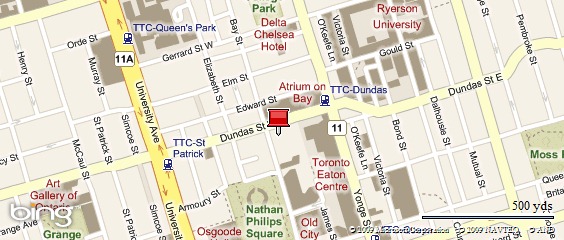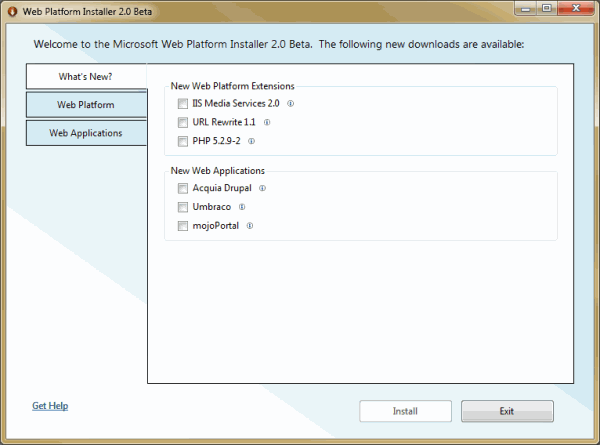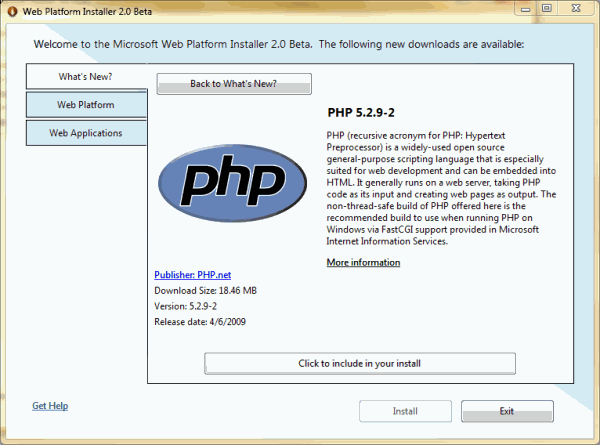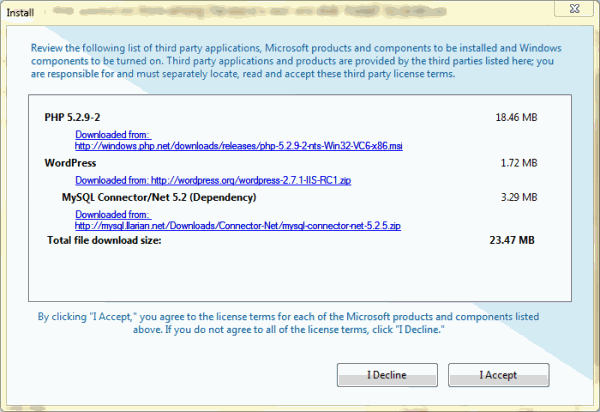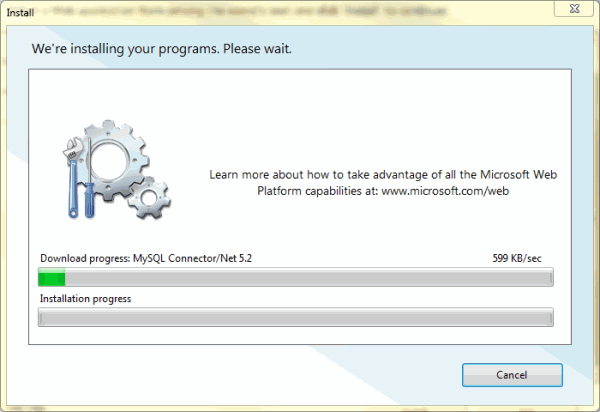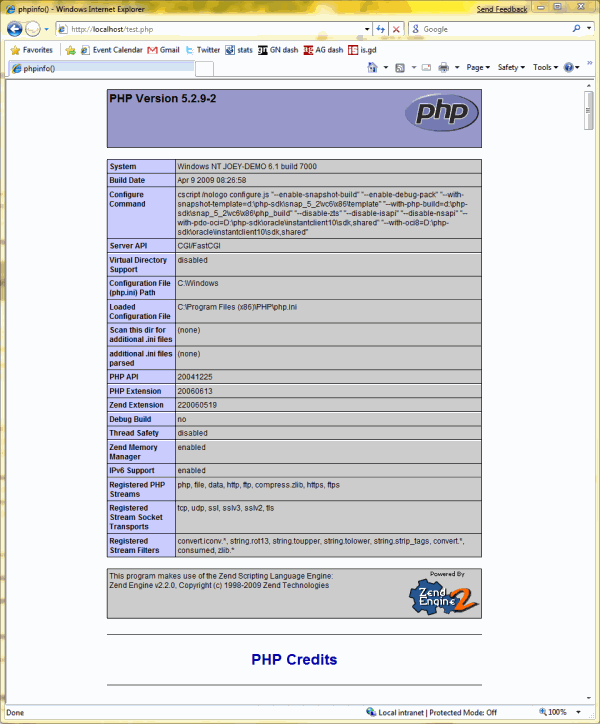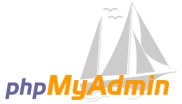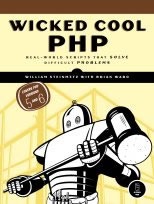Here’s a little hint: if you ever get an invitation to a Microsoft party from High Road Communications – they’re Microsoft Canada’s PR firm – accept it. They’re always in great places, have great tapas and drinks and they always invite interesting people. You’re guaranteed to have fun, and that guarantee is doubled if I’m there.
The W’s “Extreme Wow” Suite
On Thursday, right after the end of Day 2 of TechDays Montreal, my fellow developer evangelist Christian Beauclair and I made our way from Centre Mont-Royal (the TechDays Montreal venue) to the W Hotel. That’s where we were holding a little party to which we invited a number of local open source developers, some of who were at the previous night’s Career Demo Camp Montreal.
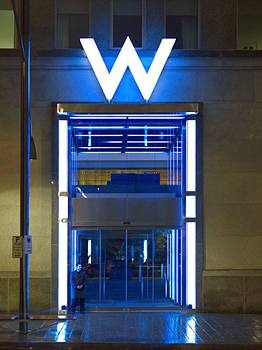
Montreal’s W hotel is a building that has undergone a radical personality change. It used to be the Banque du Canada building, the home of one of our federal government’s most stuffy, buttoned-down organizations. W hotels tend to be the exact opposite: everything about them suggests that they were designed by people who usually design nightclubs, what with DJ booths in their lobbies, electronica and funk music piped into every nook and cranny, dimly-lit hallways with lighting straight out of Blade Runner and other little touches that make it seem as if you’ve somehow managed to get into one of those secret clubs in New York City’s Meat Packing District. Simply put, it’s a pretty good place to hold a swanky cocktail party,
Christian and I followed the directions to the “Extreme Wow” suite that High Road had booked for the party. Here’s what we saw when we entered the room:
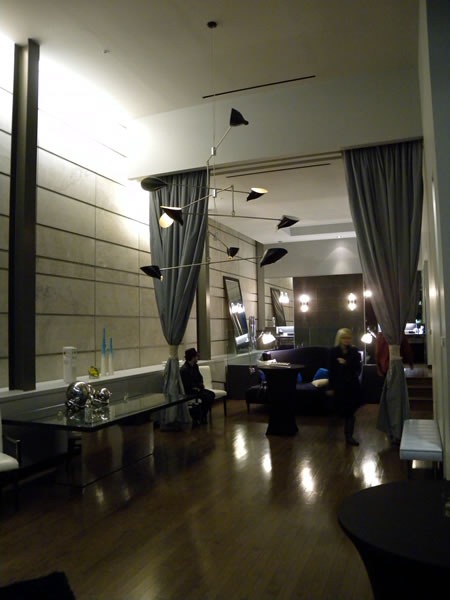
The suite was located on the top floor of the W. It was one large room with a 20 foot-high ceiling and an equally high set of windows revealing a balcony looking out onto Square Victoria and a good chunk of Montreal’s skyline. I had a sense of deja vu and soon realized that the place reminded me a little bit of Tony Prince’s swanky condo in the videogame The Ballad of Gay Tony, minus the mobsters to whom Tony owed money and wanted him dead.
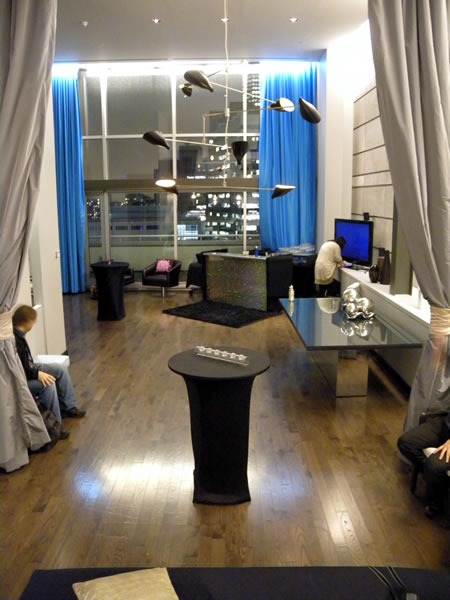
Near the back of the suite was the bathroom, which in the spirit of open source, was itself open concept and had nothing to hide. Rather than being tucked into a separate room, the shower, tub and sinks were poised on a split level four or five steps above the rest of the room, with the shower stall being a glass-and-brick enclosure in the middle of it all, looking like the monolith from 2001. The tub was recessed into the floor beside it and covered with a sheet of plywood for the party, either in order to prevent people from falling into it or to prevent me from attempting to start a party hot tub:

(Thankfully, the toilet had its own separate “water closet” room, just off to the side.)
The room had been rearranged to better suite a party than overnight guests. The bed had been removed and replaced with a hybrid couch/chaise lounge:
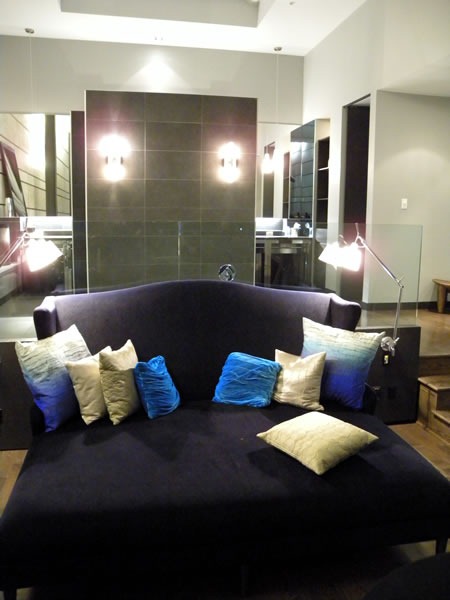
Just about everything in the room could be commanded via the master remote control, which Christian found. It controlled lights, the TV, sound system and even the curtains and skylight blinds (which could be opened and closed via remote-controlled servos):
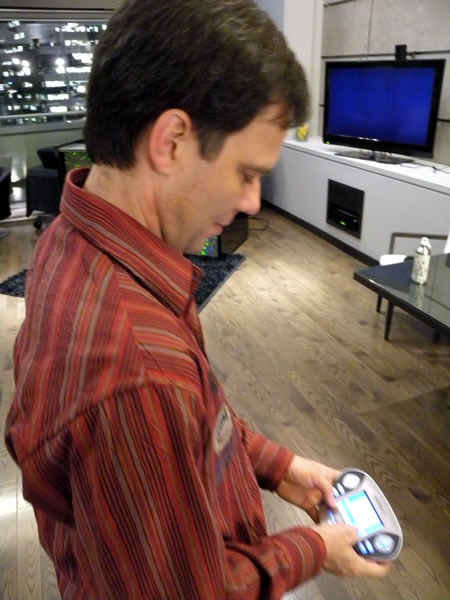
Here’s a view of Square Victoria from the balcony:

Christian also found a table centrepiece that reminded him of an M.C. Escher image that I had used in my slide presentation at Career Demo Camp Montreal:
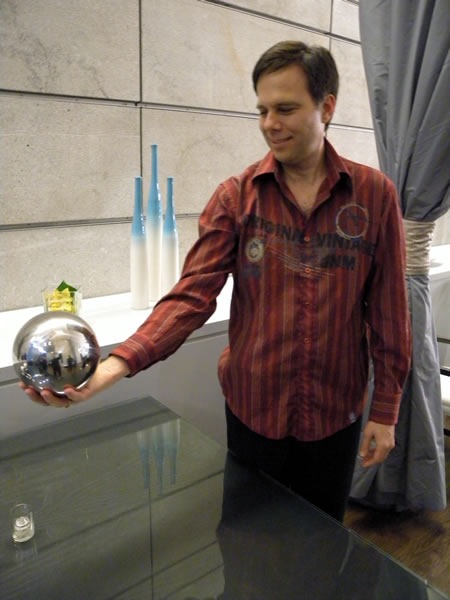
For reference, here’s that M.C. Escher piece:

Having checked out the place and taken my first set of photos, I did what I always do in such a setting: I got got a drink from the bar and made myself comfortable.
The Presentations
It wasn’t just cocktails and conversations at the party. We had some presentations as well, starting with Nik Garkusha, part of Microsoft Canada’s Open Source Strategy team. He talked about how Microsoft views open source, as well as the work we’re doing in order to make Microsoft and open source work better together.
I split his presentation into two videos. Here’s the first…
…and here’s the second:
Brendan “Digibomb” Sera-Shriar, developer with Optimal Payments, WordPress evangelist, founder of PHP Toronto and WordCamp Toronto and organizer of WordCamp Montreal, talked about his experience working with The Empire: “They’re actually doing open source!”, his use of Windows and the Windows Platform Installer and how open source and Windows can work together:
Yann Larrivee, developer, founder of PHP Quebec, FooLab and the upcoming ConFoo conference, spoke next. He talked about how he enjoyed Make Web Not War 2009, the importance of “playing well with others” both inside and outside the world of open source and how Microsoft is participating in ConFoo:
Marc Laporte, developer of TikiWiki, and among other things, talked about PHP running under IIS. It’s in French, and if anyone would like to give me a hand translating, I would appreciate it greatly!
The Party
As nice as the photos of the suite above are, the place looks far better when it’s filled with guests:
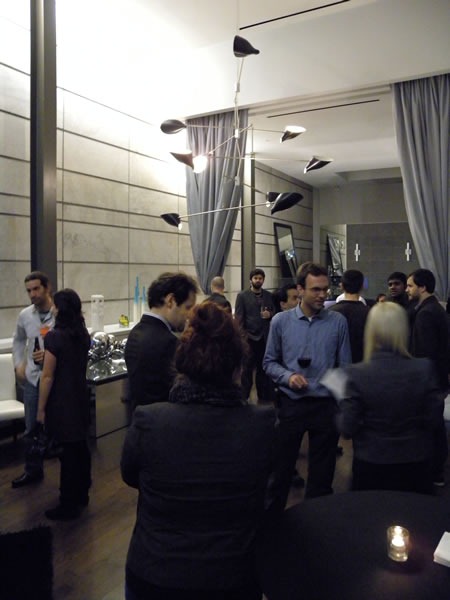
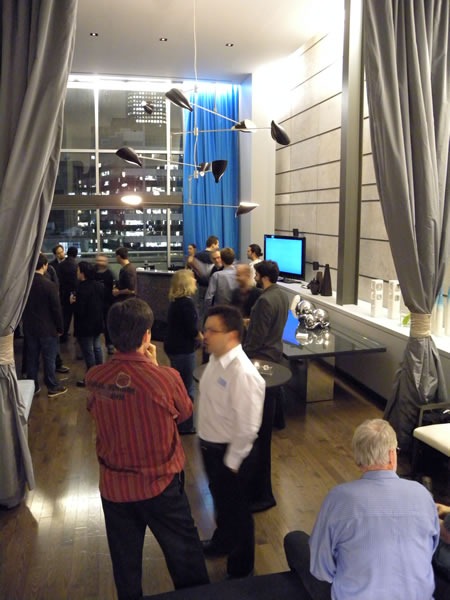
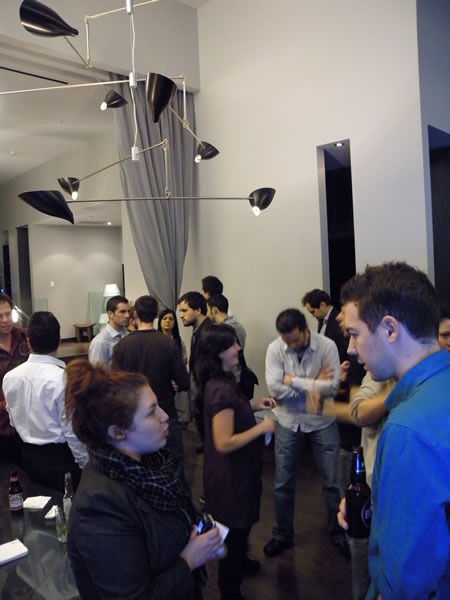
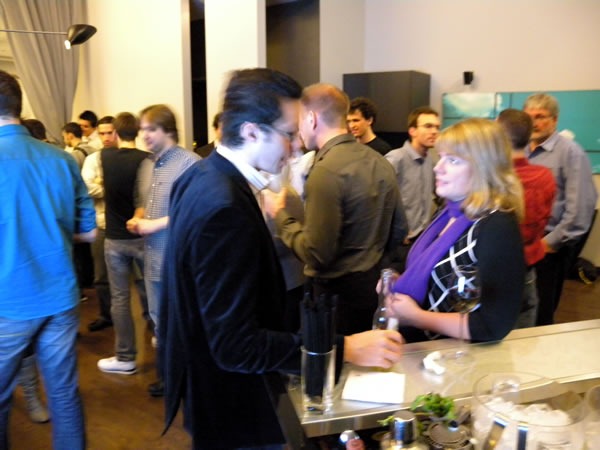
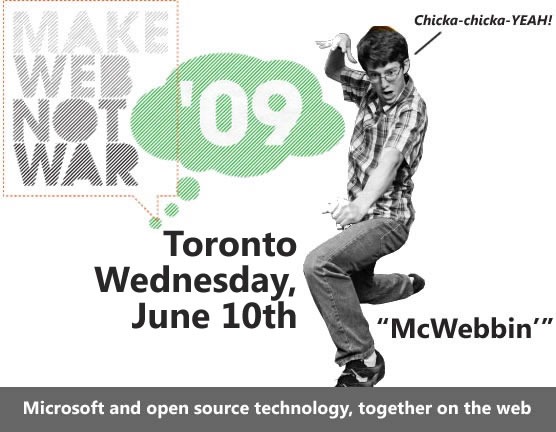



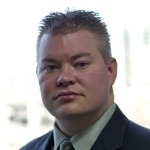


 In the professional corner is Dac Chartrand, whose submission is Sux0r, a content-management system incorporating blogging, RSS aggregation, bookmark repository and photo publishing, all with a focus on naive Bayesian categorization and probabilistic content. The extra Bayesian/probabilistic goodies allow Sux0r to auto-categorize its content and users to train it to categorize better.
In the professional corner is Dac Chartrand, whose submission is Sux0r, a content-management system incorporating blogging, RSS aggregation, bookmark repository and photo publishing, all with a focus on naive Bayesian categorization and probabilistic content. The extra Bayesian/probabilistic goodies allow Sux0r to auto-categorize its content and users to train it to categorize better. His student opponent, Carson Lam, submitted Transit DB, which aims to transform the way commuters interact with public transit information system. The application is Carson’s answer to the question “How can we provide a modern, clean and user-friendly interface for transit data in cities?” The current version covers public transit for the Metro Vancouver region.
His student opponent, Carson Lam, submitted Transit DB, which aims to transform the way commuters interact with public transit information system. The application is Carson’s answer to the question “How can we provide a modern, clean and user-friendly interface for transit data in cities?” The current version covers public transit for the Metro Vancouver region.

